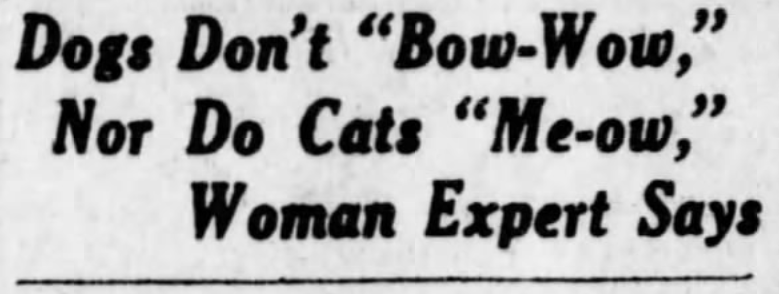David Roth memorably described the job of neoliberal economists as finding "new ways to say 'actually, your boss is right.'" Not just bosses: economists are a bulwark against obvious answers to our worst agonies: wages, education, health and shelter:
popula.com/2023/04/30/yak…
1/
popula.com/2023/04/30/yak…
1/

If you'd like an essay-formatted version of this thread to read or share, here's a link to it on pluralistic.net, my surveillance-free, ad-free, tracker-free blog:
pluralistic.net/2023/05/16/mor…
2/
pluralistic.net/2023/05/16/mor…
2/
How can we solve the student debt crisis? Well, we could cancel student debt and regulate the price of education, either directly or through free state college.
How can we solve America's heath-debt crisis? We could cancel health debt and create #MedicareForAll.
3/
How can we solve America's heath-debt crisis? We could cancel health debt and create #MedicareForAll.
3/
How can we solve America's homelessness crisis? We could build houses and let homeless people live in them.
How can we solve America's wage-stagnation crisis? We could raise the minimum wage and/or create a federal jobs guarantee.
4/
How can we solve America's wage-stagnation crisis? We could raise the minimum wage and/or create a federal jobs guarantee.
4/
How can we solve America's workplace abuse crisis? We could allow workers to unionize.
How can we solve America's price-gouging #greedflation crisis? With #PriceControls and/or #WindfallTaxes.
How can we solve America's inequality crisis? We could #TaxBillionaires.
5/
How can we solve America's price-gouging #greedflation crisis? With #PriceControls and/or #WindfallTaxes.
How can we solve America's inequality crisis? We could #TaxBillionaires.
5/
How can we solve America's monopoly crisis? We could break up #monopolies.
How can we solve America's traffic crisis? We could build #PublicTransit.
How can we solve America's carbon crisis? We can regulate carbon emissions.
6/
How can we solve America's traffic crisis? We could build #PublicTransit.
How can we solve America's carbon crisis? We can regulate carbon emissions.
6/
These answers make sense to everyone except neoliberal economists and people in their thrall. Rather than doing the thing we want, neoliberal economists insist we must unleash "markets" to solve the problems, by "creating incentives."
7/
7/
That may sound like a recipe for a small state, but in practice, "creating incentives" often involves building huge bureaucracies to "keep the incentives aligned" (that is, to prevent private firms from ripping off public agencies).
8/
8/
This is how we get "solutions" that fail catastrophically, like:
* #PublicServiceLoanForgiveness instead of debt cancellation and free college:
studentloansherpa.com/likely-ineligi…
* The #GigEconomy instead of unions and minimum wages:
newswise.com/articles/resea…
9/
* #PublicServiceLoanForgiveness instead of debt cancellation and free college:
studentloansherpa.com/likely-ineligi…
* The #GigEconomy instead of unions and minimum wages:
newswise.com/articles/resea…
9/
* Interest rate hikes instead of price caps and windfall taxes:
npr.org/2023/05/03/117…
* Tax breaks for billionaire philanthropists instead of taxing billionaires:
memex.craphound.com/2018/11/10/win…
10/
npr.org/2023/05/03/117…
* Tax breaks for billionaire philanthropists instead of taxing billionaires:
memex.craphound.com/2018/11/10/win…
10/
* Subsidizing Uber instead of building mass transit:
prospect.org/infrastructure…
* Fraud-riddled carbon trading instead of emissions limits:
pluralistic.net/2022/05/27/vol…
11/
prospect.org/infrastructure…
* Fraud-riddled carbon trading instead of emissions limits:
pluralistic.net/2022/05/27/vol…
11/
As infuriating as all of this "actually, your boss is right" nonsense is, the most immediate and continuously frustrating aspect of it is the housing crisis, which has engulfed cities all over the world, to the detriment of nearly everyone.
12/
12/
America led the way on screwing up housing. There were two major New Deal/post-war policies that created broad (but imperfect and racially biased) prosperity in America: housing subsidies and labor unions.
13/
13/
Of the two, labor unions were the most broadly inclusive, most available across racial and gender lines, and most engaged with civil rights struggles and other progressive causes.
14/
14/
So America declared war on labor unions and told working people that their only path to intergenerational wealth was to buy a home, wait for it to "appreciate," and sell it on for a profit. This is a disaster.
15/
15/
Without unions to provide countervailing force, every part of American life has worsened, with stagnating wages lagging behind skyrocketing expenses for education, health, retirement, and long-term care.
16/
16/
For nearly every homeowner, this means their most valuable asset - their home - must be liquidated to cover debts. Their kids, burdened with student debt - get little/nothing from the sale of a family home for a downpayment in a hyperinflated market:
gen.medium.com/the-rents-too-…
17/
gen.medium.com/the-rents-too-…
17/
Meanwhile, *rent* inflation is screaming ahead of other forms of inflation, burdening working people beyond any ability to pay.
18/
18/
Giant Wall Street firms have bought up huge swathes of the country's housing stock, transforming it into overpriced, undermaintained slums that you can be evicted from at the drop of a hat:
pluralistic.net/2022/02/08/wal…
19/
pluralistic.net/2022/02/08/wal…
19/
Transforming housing from a human right to an "asset" was always going to end in a failure to build new housing stock and regulate the rental market. It's reaching a breaking point.
20/
20/
"#SuperstarCities" like New York and San Francisco have long been priced out of the reach of working people, but now they're becoming unattainable for double-income, childless, college-educated adults in their prime working years:
nytimes.com/interactive/20…
21/
nytimes.com/interactive/20…
21/
A city that you can't live in is a failure. A system that can't provide decent housing is a failure. The "your boss is right, actually" crowd won: we don't build public housing, we don't regulate rents, and it suuuuuuuuuuuuuuucks.
22/
22/
Maybe we could try *doing things* instead of "aligning incentives?"
Like, how about #RentControl.
God, you can already hear them squealing!
23/
Like, how about #RentControl.
God, you can already hear them squealing!
23/
"Price controls artificially distort well-functioning markets, resulting in a mismatch between supply and demand and the creation of the dreaded deadweight loss triangle!"
24/
24/
Rent control "causes widespread shortages, leaving would-be renters high and dry while screwing landlords (the road to hell, so says the orthodox economist, is paved with good intentions)."
25/
25/
That's been the received wisdom for decades, fed to us by #ChicagoSchool economists who are so besotted with their own mathematical models that any mismatch between the models' predictions and the real world is chalked up to errors in the real world, not the models.
26/
26/
It's pure #economism: "If economists wished to study the horse, they wouldn’t go and look at horses. They’d sit in their studies and say to themselves, ‘What would I do if I were a horse?’"
pluralistic.net/2022/10/27/eco…
27/
pluralistic.net/2022/10/27/eco…
27/
But, as @MarkVinPaul writes for @TheProspect, rent control *works*:
prospect.org/infrastructure…
Rent control doesn't constrain housing supply:
dornsife.usc.edu/pere/rent-matt…
At least some of the time, rent control *expands* housing supply:
onlinelibrary.wiley.com/doi/full/10.11…
28/
prospect.org/infrastructure…
Rent control doesn't constrain housing supply:
dornsife.usc.edu/pere/rent-matt…
At least some of the time, rent control *expands* housing supply:
onlinelibrary.wiley.com/doi/full/10.11…
28/
The real risk of rent control is landlords exploiting badly written laws to kick out tenants and convert their units to condos - that's not a problem with rent control, it's a problem with eviction law:
web.stanford.edu/~diamondr/DMQ.…
29/
web.stanford.edu/~diamondr/DMQ.…
29/
Meanwhile, removing rent control doesn't trigger the predicted increases in housing supply:
sciencedirect.com/science/articl…
30/
sciencedirect.com/science/articl…
30/
Rent control creates winners (tenants) and losers (landlords), but it doesn't make everyone worse off - as doctrine insists it must. Instead, tenants who enjoy rent control have extra money in their pockets to spend on groceries, debt service, vacations, and child-care.
31/
31/
Those happier, more prosperous people, in turn, increase the value of their landlords' properties, by creating happy, prosperous neighborhoods.
32/
32/
Rent control means that when people in a neighborhood increase its value, their landlords can't kick them out and rent to richer people, capturing all the value the old tenants created.
33/
33/
What is life like with rent control? It's great. Your family stays put until you're ready to move on, as do your neighbors. Your kids don't have to change schools and find new friends. Old people aren't torn away from communities who care for them:
ideas.repec.org/a/uwp/landec/v…
34/
ideas.repec.org/a/uwp/landec/v…
34/
In Massachusetts, tenants with rent control pay half the rent that their non-rent-controlled neighbors pay:
economics.mit.edu/sites/default/…
Rent control doesn't just make tenants better off, it makes society better off.
35/
economics.mit.edu/sites/default/…
Rent control doesn't just make tenants better off, it makes society better off.
35/
Rather than money flowing from a neighborhood to landlords, rent control allows the people in a community to invest it there: opening and patronizing businesses.
36/
36/
Anything that can't go on forever will eventually stop. As the housing crisis worsens, states are finally bringing back rent control. #NewYork has strengthened rent control for the first time in 40 years:
nytimes.com/2019/06/12/nyr…
37/
nytimes.com/2019/06/12/nyr…
37/
California has a new statewide rent control law:
nytimes.com/2019/09/11/bus…
They're battling anti-rent-control state laws pushed by #ALEC, the right-wing architects of model legislation banning action on climate, broadband access, and abortion:
nmhc.org/research-insig…
38/
nytimes.com/2019/09/11/bus…
They're battling anti-rent-control state laws pushed by #ALEC, the right-wing architects of model legislation banning action on climate, broadband access, and abortion:
nmhc.org/research-insig…
38/
But rent control has broad, democratic support. Strong majorities of likely voters support rent control:
bostonglobe.com/2023/03/07/met…
39/
bostonglobe.com/2023/03/07/met…
39/
And there's a kind of rent control that has near unanimous support: the 30-year fixed mortgage. For the 67% of Americans in owner-occupied homes, federally-backed (and thus federally subsidized) fixed mortgages mean that your monthly shelter costs don't rise.
40/
40/
What's more, these costs go *down* the longer you pay them, as mortgage borrowers refinance when interest rates dip.
We have a two-tier system: if you own a home, then the longer you stay put, the cheaper your "rent" gets.
41/
We have a two-tier system: if you own a home, then the longer you stay put, the cheaper your "rent" gets.
41/
If you rent a home, the longer you stay put, the more expensive your home gets over time.
America needs a *shit-ton* more housing - regular housing for working people. Mr Market doesn't want to build it, no matter how many "incentives" we dangle.
42/
America needs a *shit-ton* more housing - regular housing for working people. Mr Market doesn't want to build it, no matter how many "incentives" we dangle.
42/
Maybe it's time we just *did stuff* instead of building elaborate Rube Goldberg machines in the hopes of luring the market's animal sentiments into doing it for us.
43/
43/
Image:
ozz13x (modified)
commons.wikimedia.org/wiki/File:Shan…
Matt Brown (modified)
commons.wikimedia.org/wiki/File:Dini…
CC BY 2.0
creativecommons.org/licenses/by/2.…
eof/
ozz13x (modified)
commons.wikimedia.org/wiki/File:Shan…
Matt Brown (modified)
commons.wikimedia.org/wiki/File:Dini…
CC BY 2.0
creativecommons.org/licenses/by/2.…
eof/
• • •
Missing some Tweet in this thread? You can try to
force a refresh

 Read on Twitter
Read on Twitter


















